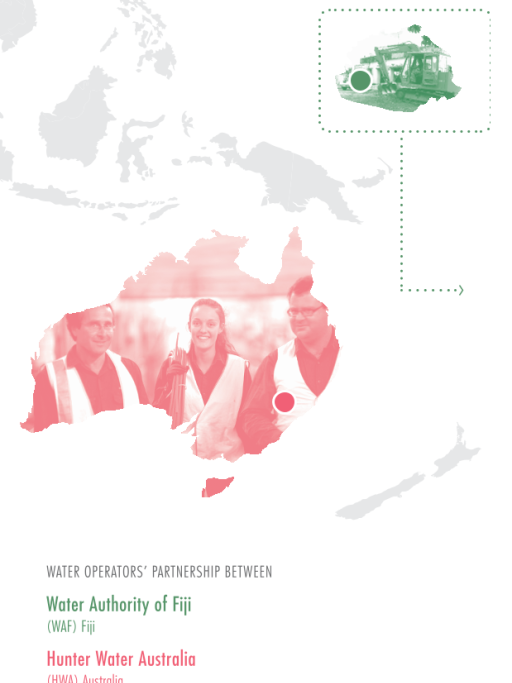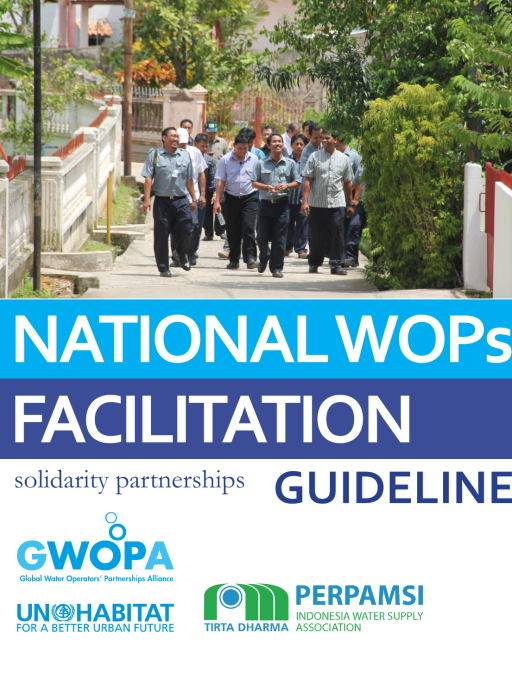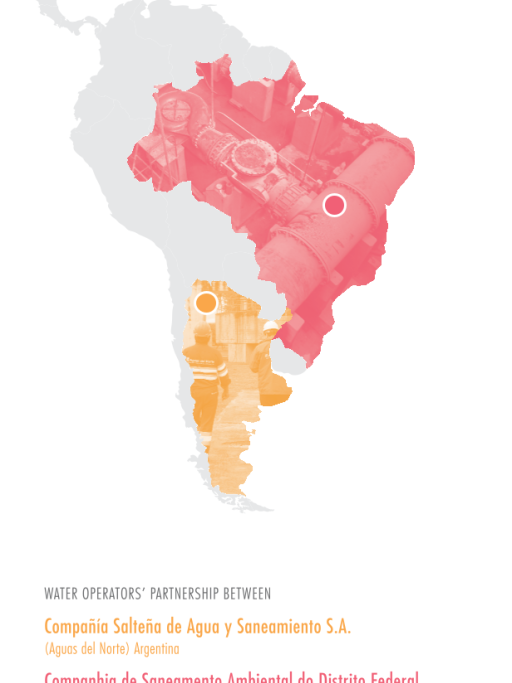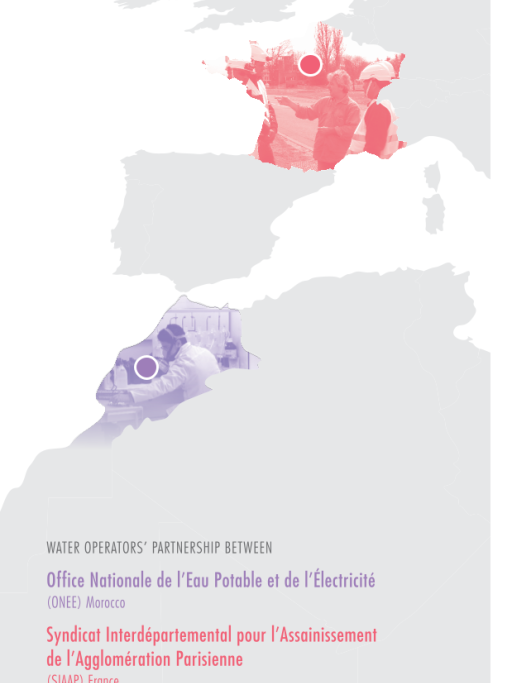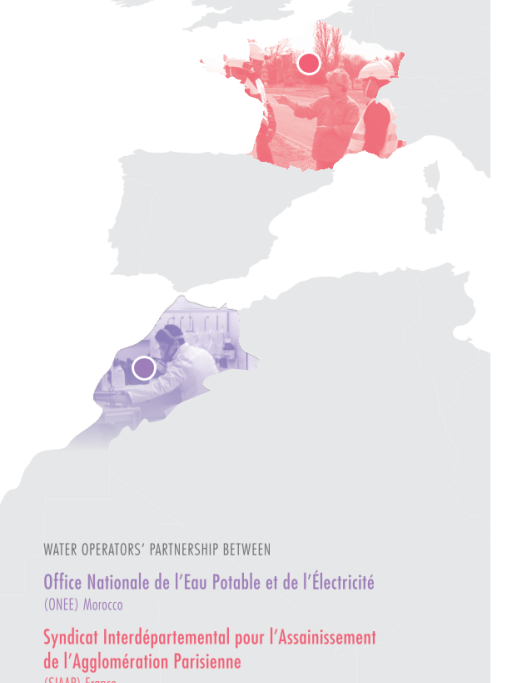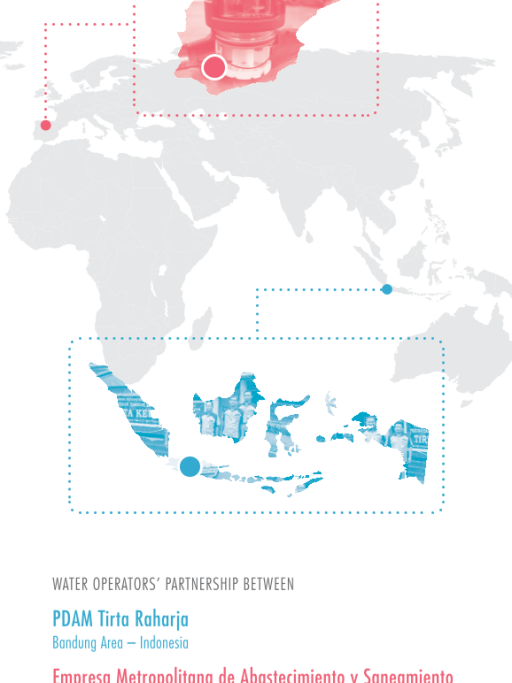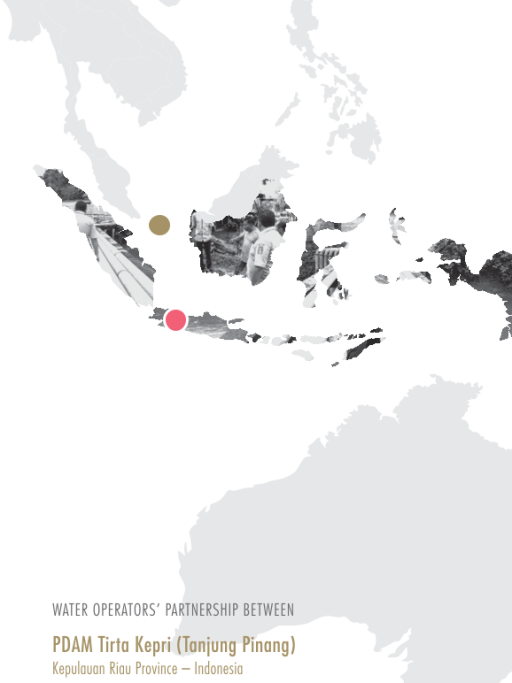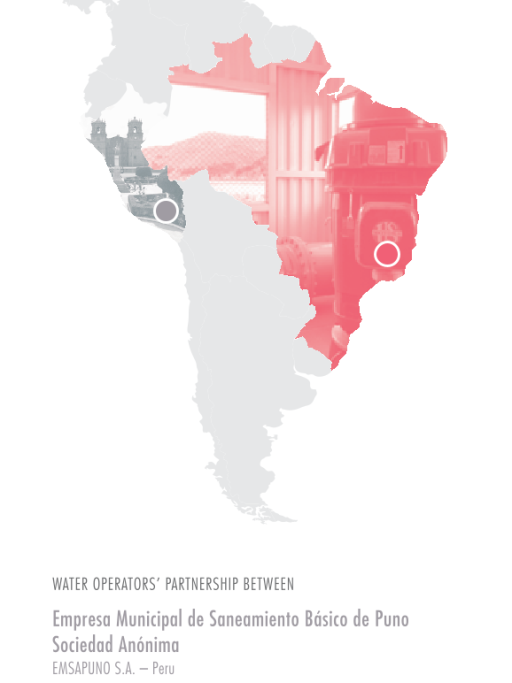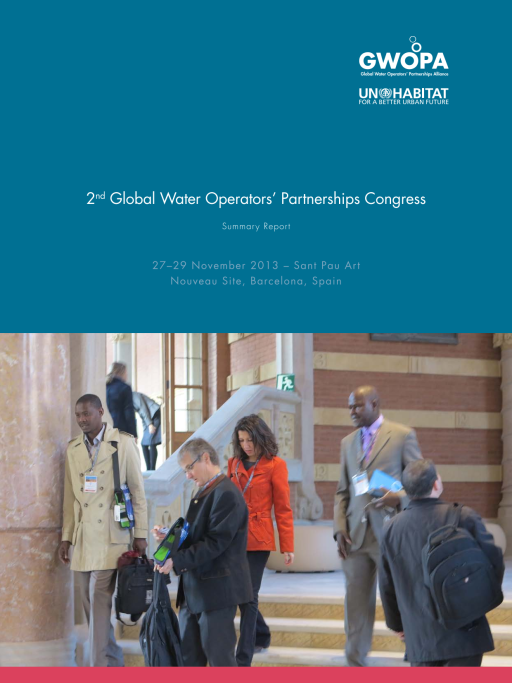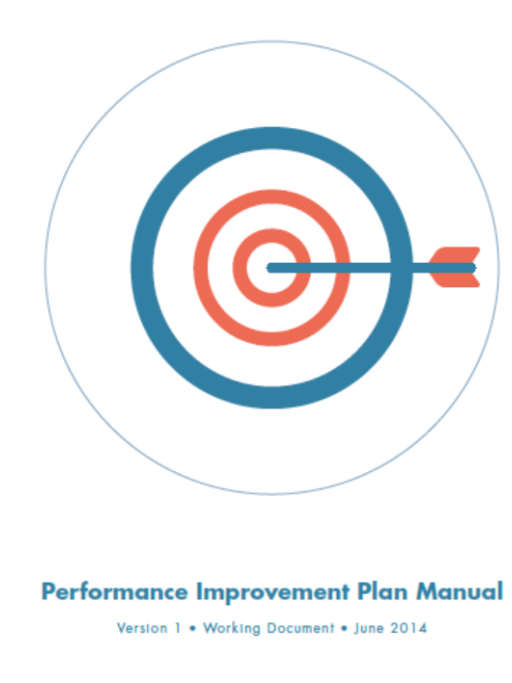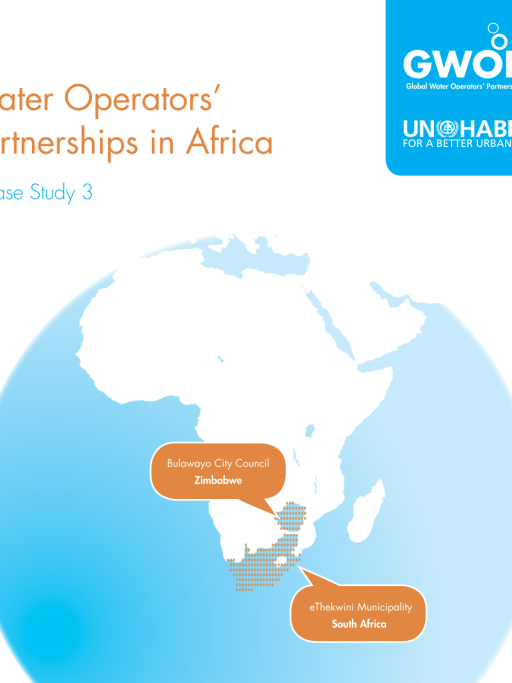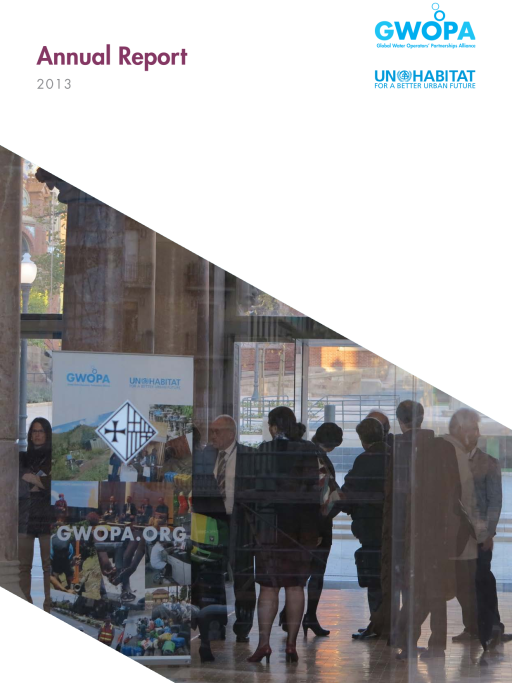Fact Sheets
Oceania
Water Operators’ Partnership between Water Authority of Fiji (WAF) Fiji – Hunter Water Australia (HWA) Australia
This fact sheet informs about the water operators' partnership (WOP) between WAF Fiji and HWA Australia. The partners focused on six priority areas following a dynamic and participatory diagnosis, which resulted in an ambitious one-year work plan. The management of the WOP was informal however followed the initial plan. Classroom and on the job training, frequent remote exchanges and operational assistance visits allowed for the expected...
Tools & Guidelines
National WOPs Facilitation Guidelines
These guidelines were developed by the Indonesia Water Supply Association (PERPAMSI), supporting and facilitating national water operators' partnerships (WOPs). The guidelines advise on national WOPs based on the Indonesian experience and include a step-by-step guide to the process, covering brokering, diagnosis, work plan development and more.
Fact Sheets
Latin America and the Caribbean
Water Operators’ Partnership between Compañía Salteña de Agua y Saneamiento S.A. (Aguas del Norte) Argentina - Companhia de Saneamento Ambiental do Distrito Federal (Caesb) Brazil
This fact sheet presents the highlights of the Water Operators' Patnership (WOP) between Aguas del Norte as mentee and Caesb as mentor. The initial focus for the WOP was energy efficiency. Building on this success, the operators extended their partnership and focus on metering, tariffs, IT systems and wastewater treatment.
Fact Sheets
Arab States
Water Operators’ Partnership between Office Nationale de l’Eau Potable et de l’Électricité (ONEE) Morocco – Syndicat Interdépartemental pour l’Assainissement de l’Agglomération Parisienne (SIAAP) France
The WOP is aimed to strengthen technical and organizational capacity of ONEE through knowledge sharing with SIAAP, besides technical support and training, mostly for water sanitation purposes. Self-facilitated and financed, the WOP progresses at its own pace, in response to the needs of the partners, being the knowledge sharing currently through direct interaction between the respective technical departments.
Fact Sheets
Africa
Water Operators’ Partnership between Office National de l’Eau et de l’Assainissement (ONEA) Burkina Faso – Office National de l’Électricité et de l’Eau Potable (ONEE) Morocco
This Water Operators' Partnership aims to boost the technical and organizational capacity of ONEA Burkina Faso through training and targeted operational assistance from ONEE Morocco. A joint diagnosis of ONEA's operations identified priority gaps to be addressed in the support. Partners jointly developed a work plan, with objectives, activities, resource requirements and roles.
Fact Sheets
Asia
Water Operators’ Partnership between PDAM Tirta Raharja, Bandung Area, Indonesia – Empresa Metropolitana de Abastecimiento y Saneamiento de Aguas de Sevilla (EMASESA) Spain
The main aim of the Water Operators' Partnership was to improve the non-revenue water levels and the billing accuracy of PDAM Tirta Raharja, Indonesia with support from EMASESA, Spain. A parallel outcome of this collaboration was the increased motivation of staff and workers and the high satisfaction of both operators from the collaboration.
Fact Sheets
Asia
Water Operators’ Partnership between PDAM Tirta Kepri (Tanjung Pinang) Kepulauan Riau Province, Indonesia – PDAM Tirta Raharja (Kabupaten Bandung) Bandung Area, Indonesia
This fact sheet provides an overview of the national Water Operators' Partnership between PDAM Tirta Kepri and PDAM Tirta Raharja in Indonesia.
Fact Sheets
Latin America and the Caribbean
Water Operators’ Partnership between Empresa Municipal de Saneamiento Básico de Puno Sociedad Anónima (EMSAPUNO S.A.) Peru – Companhia de Saneamento de Minas Gerais (COPASA MG) Brazil
This fact sheet shows the highlights og the Water Operators' Partnership between EMSAPUNO Peru and COPASA Brazil.
Policy Briefs & Reports
2nd Global Water Operators’ Partnerships Congress. Summary Report
This report summarizes the proceedings of the second congress GWOPA, held in Barcelona in 2013, with its themes finance and results of Water Operators' Partnerships (WOPs), learning approaches, capacity development for non-revenue water management, water workers and risk reduction, along with an overview on the regional WOP platforms work, recent performance and future goals.
Tools & Guidelines
Performance Improvement Plan Manual
A performance improvement plan (PIP) is a comprehensive strategic work plan developed to address a variety of utility management issues, with the aim of improving utility performance and enabling the utility to achieve its short- and medium-term objectives. One of these objectives may be improving services to the urban poor. This guide is a planning tool developed in collaboration with water operators building on lessons learned rom their water...
Case Studies
Africa
Water Operators’ Partnerships in Africa. Case Study 3: Bulawayo City Council and eThekwini Water and Sanitation
The Water Operators' Partnership (WOP) between Bulawayo City Council, Zimbabwe, and eThekwini Water and Sanitation, City of Durban, South Africa, which was facilitated by the Australian Agency for International Development, World Vision and Department of Trade and Industry, South Africa, was to reduce the vulnerability to waterborne diseases through improved sewerage, water supply systems, capacity-building and hygiene promotion in Bulawayo City...
Policy Briefs & Reports
Global
GWOPA Annual Report 2013
This Annual Report provides an overview of the activities and achievements of the Global Water Operators’ Partnerships Alliance in 2013.
